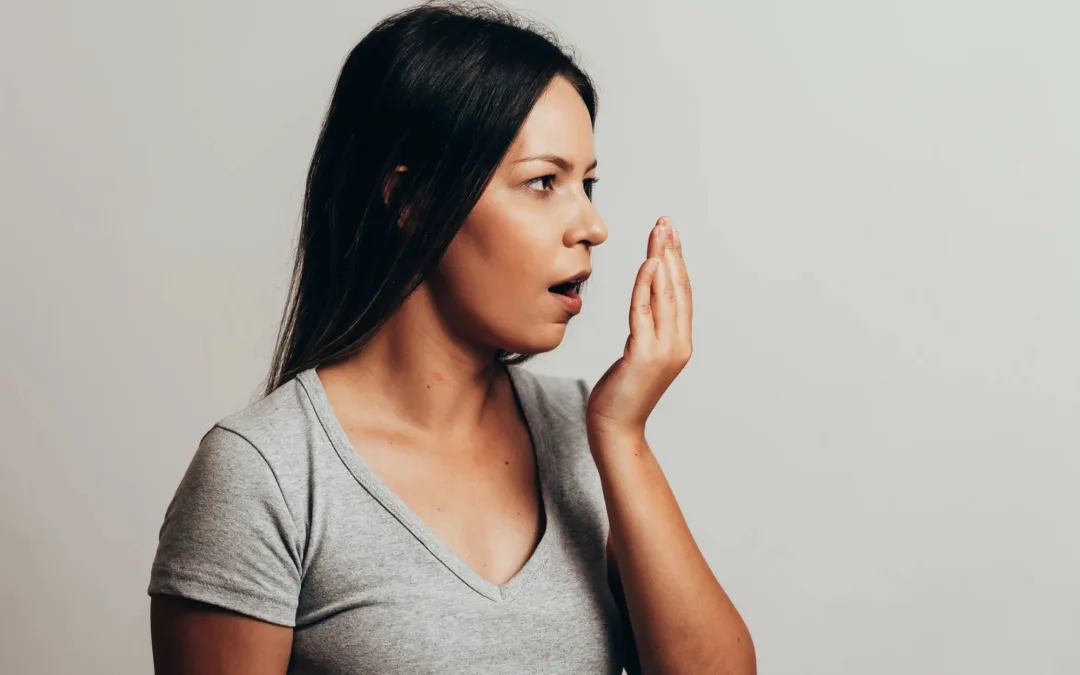Nearly 90% of adults experience tooth decay in their lives. Cavities, also known as dental caries, are common oral health issues that can lead to discomfort and pain. But, do cavities cause bad breath?
They certainly can.
Nobody wants bad breath, right? In your personal and professional lives, you’ll need to speak with people regularly. You don’t want to be that person in their lives, do you?
We didn’t think so.
In this guide, we’ll talk about the connection between bad breath and cavities. We’ll discuss the underlying issues and what you can do about them. So, grab your toothbrush and keep reading.
Do Cavities Cause Bad Breath?
Cavities are small holes or openings that form on the surface of teeth due to the erosion of enamel by acids produced by bacteria in the mouth. These bacterial acids are also responsible for the foul odor associated with bad breath.
Bacteria thrive as cavities progress. They produce volatile sulfur compounds that emit a distinctively unpleasant smell.
This connection between cavities and bad breath highlights the intricate relationship between oral health and overall well-being.
Underlying Causes of Bad Breath
You don’t want to have cavity treatment and other dental problems down the line, do you? When you know how to take care of your oral health, you’ll be much better off. Let’s take a look at some of the most common underlying causes of halitosis:
Dry Mouth (Xerostomia)
Saliva plays a crucial role in rinsing away food particles and bacteria. A dry mouth can lead to increased bacterial growth and contribute to halitosis.
Poor Oral Hygiene
Inadequate brushing, flossing, and tongue cleaning can allow bacteria to thrive in the mouth. This of course leads to bad breath and more severe issues like tooth decay and gum disease.
Unhealthy Habits
Smoking, tobacco use, and excessive alcohol consumption can contribute to bad breath. This is because your mouth will be dried out which promotes bacterial growth.
Diet Choices
Consuming pungent foods like garlic and onions can lead to temporary bad breath. These compounds are absorbed into the bloodstream and expelled through the lungs.
Remedies to Combat Cavities and Bad Breath
Now that we’ve answered the question, “Do cavities cause bad breath?”, what can you do about it? Let’s look at some of the most effective remedies possible below:
Regular Brushing and Flossing
The foundation of good oral health begins with consistent and thorough brushing and flossing. Use fluoride toothpaste and a soft-bristle toothbrush to clean your teeth twice a day. Don’t forget to floss daily to remove food particles and plaque from between your teeth.
Visit Your Dentist
Regular dental check-ups are crucial for identifying and treating cavities early on. Your dentist can conduct a thorough examination, take X-rays, and provide necessary treatments. For example, fillings can help to prevent cavities from progressing and causing bad breath.
Mouthwash and Rinses
Antiseptic mouthwashes and rinses can help reduce the population of bacteria in your mouth, minimizing bad breath. Look for products that contain ingredients like chlorhexidine or cetylpyridinium chloride.
Stay Hydrated
Drinking water throughout the day helps maintain saliva production. This plays a vital role in washing away food particles and bacteria.
Sugar Control
Limiting sugary foods and drinks can help prevent cavity formation. Bacteria feed on sugars, producing acids that erode tooth enamel. Opt for a balanced diet rich in vegetables, fruits, lean proteins, and whole grains.
Chew Sugar-Free Gum
Chewing sugar-free gum stimulates saliva production, which can help neutralize acids and cleanse your mouth. Look for gums that contain xylitol, a natural sweetener that has been shown to inhibit bacterial growth.
Maintain a Breath-Friendly Routine
To keep your breath fresh, consider scraping your tongue gently with a tongue scraper. This will help to remove bacteria and residue (in addition to your regular oral hygiene routine).
Will Filling Cavities Fix Bad Breath?
While cavity treatment may improve bad breath, it won’t fix it entirely. Stay diligent in your oral health and you’ll prevent it from worsening.
In the early stages, you may be able to use some fluoride treatments to help prevent tooth decay. Some severe cases will require fillings.
Other Signs of a Cavity
Having bad breath is just one sign of a cavity. So what else should you look out for?
- Tooth pain
- White or dark spots
- Being sensitive to hot or cold drinks or foods
- Abscess around the tooth
- Having a fever or your face swelling
Additional Tips for Optimal Oral Health
If you wear dentures, retainers, or other dental appliances, make sure to clean them thoroughly as they can harbor bacteria and contribute to bad breath.
Some medications can cause dry mouth, leading to bad breath. If you’re experiencing this, discuss potential solutions with your healthcare provider.
Stress can affect your oral health. Practice relaxation techniques such as deep breathing, meditation, or yoga to help reduce stress-related bad breath.
You’ll Be Smiling After Your Next Visit
Now that we’ve answered the question, “Do cavities cause bad breath?”, what’s next?
By understanding the link between the two and implementing effective remedies, you can take control of your oral health. You don’t want any oral problems later in life, do you?
Remember, consistent oral hygiene practices and regular visits to your dentist are crucial for preventing cavities and maintaining fresh breath. Take control of your morning habits and wash away your bad breath.
Is it time for you to schedule a visit with Carolina Smile? Don’t hesitate, your teeth are depending on you!

